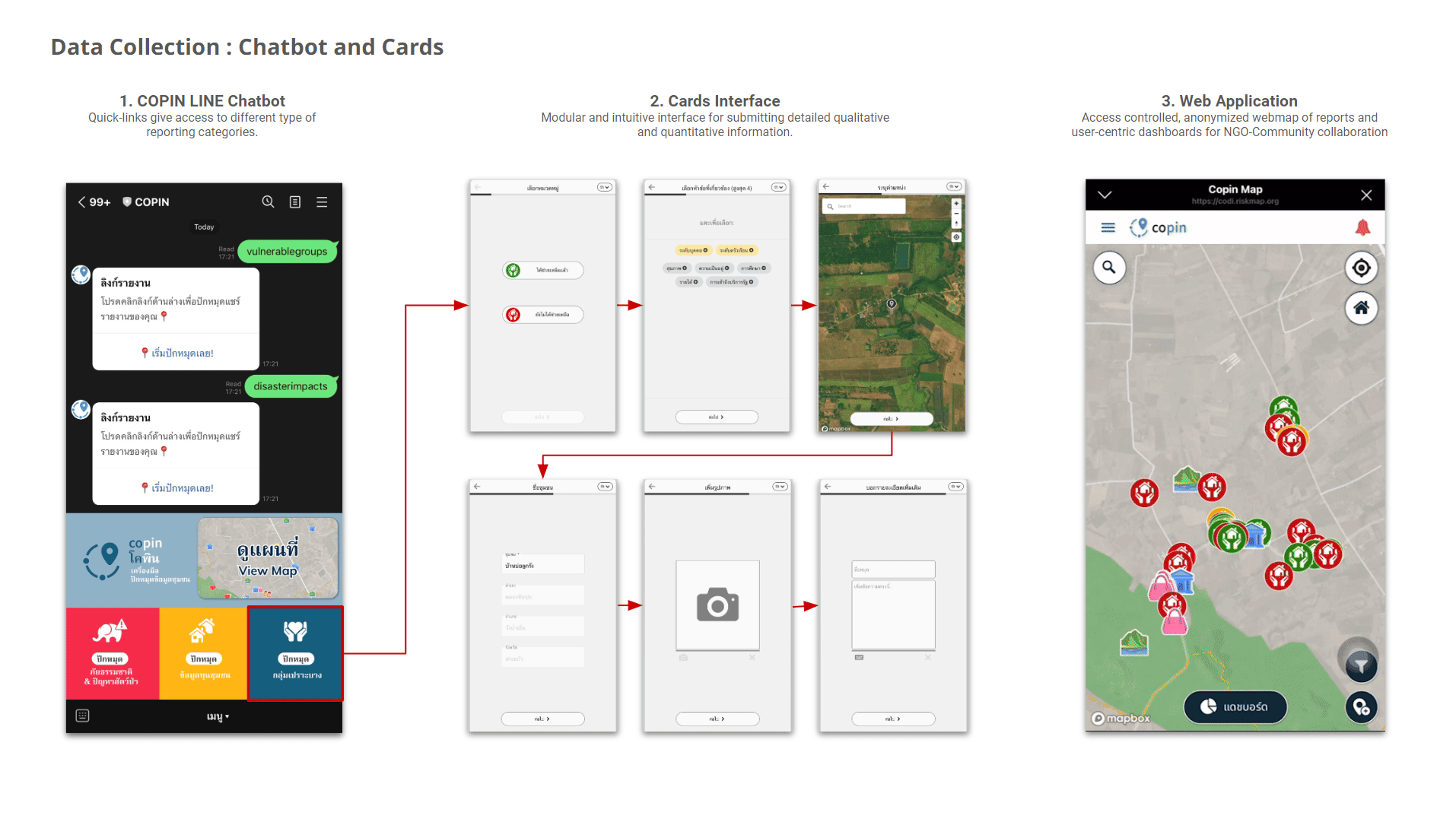COPIN
Climate change poses a significant risk to resource-constrained communities in Southeast Asia, where socio-economic disparities exacerbate vulnerabilities to environmental hazards. One of the most prevalent challenges with addressing that risk is that the traditional top-down approach to resilience planning often overlooks the rich tapestry of grass-roots knowledge and specific needs of local communities, leaving them unprepared for climate-related disasters. Furthermore, many of those communities on their own lack the digital resources necessary for effective and up-to-date mapping of local climate resilience assets. The COPIN Project seeks to resolve both of those problems with one solution: a digital toolkit that allows communities to map important resilience attributes such as community assets, climate risks, and adaptation opportunities on a hyper-local scale while also serving as a platform that organizes local data into a system capable of matching larger institutions to smaller communities with which they most align.
On a local level, this software helps emergency services respond effectively and, more broadly, empowers communities to actively engage in their own resilience efforts. In addition to upgrading local capabilities, this data will sharpen the top-down efforts of both government agencies and efforts from the private sector that might otherwise fall short of meeting the actual needs of communities. So far, the Urban Risk Lab has completed prototypes of the local mapping software, including an AI chatbot interface on a popular messaging app (LINE) for reporting disasters and community assets. Using these tools, pilot programs have been conducted in three different Thai communities: Sa Kaeo, Chai Nat, and Phuket. Going forward, the plan is to refine the community mapping tools and develop the platform that connects local data to larger funding sources.
By creating a system embedded in the existing structures of community knowledge while facilitating top-down planning, this project achieves one of the Urban Risk Lab’s primary goals: to instill disaster resilience in existing practices instead of creating new ones. By leveraging the local insight and needs of small communities in conjunction with government and corporate financial resources, COPIN does not necessarily change any of these systems — rather, it connects them. This mutually beneficial approach allows for seamless integration across all scales. Funding at the top level will be used more efficiently while local projects will be better supported. Through mapping, data organization, and community-oriented design, COPIN will enable a network of systems across Thailand to work cooperatively toward disaster resilience in unprecedented ways.
MIT Urban Risk Lab: Miho Mazereeuw, Aditya Barve, Mayank Ojha, Eakapob Huangthanapan, Pimpakarn Rattanathumawat, Rutvik Deshpande
Supported by: Bangkok Bank, MIT Climate and Sustainability Consortium Seed Fund
Field Partners: Bangkok Bank, Community Organization Development Institute (CODI), Thailand Board of Investment (BOI), Collective Resilience Network, The Office of the Securities and Exchange Commission (SEC), the Federation of Thai Capital Market Organizations (FETCO), Social Enterprise Promotion Office, Thai Health Promotion Foundation











